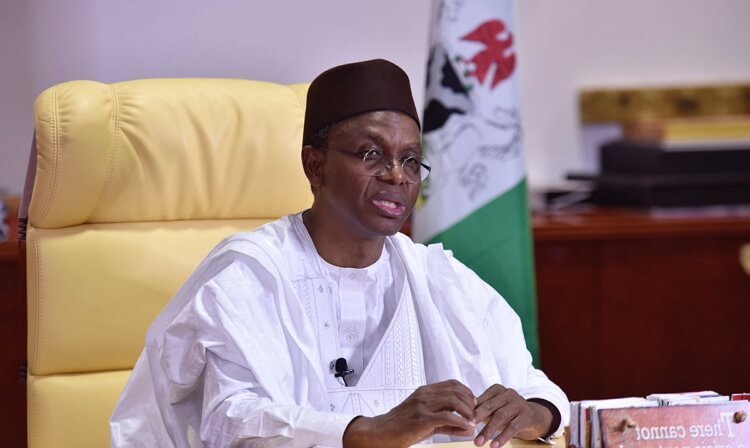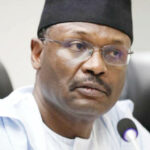Since 2016, Malam Nasir Ahmad El-Rufai, the Executive Governor of Kaduna State, has redefined budget making and set the bar of appropriation in the country. First, he has aligned the fiscal year with the calendar year, by submitting budget proposals on time.
Consistently, the capital expenditures have been receiving the lion share of the budget in the last five years. Similarly, the Education and Health sectors got a huge chunk of the budget estimates, in line with the Kaduna State Restoration Plan.
Significantly, on November 28, 2015, after six months in office, El-Rufai had presented a draft of the 2016 budget to a Town Hall meeting. The aim, according to him, was to scrutinise the proposal and accommodate people’s inputs.
In all, the size of the budget was N166 billion, where N104 billion was earmarked for capital expenditure and N62 billion was for recurrent spending. Thereafter, Kaduna State House of Assembly passed the budget on December 22 and the next day, the governor signed it into law.
In 2016, after one year in office, El-Rufai improved on his record but essentially, the 2017 budget retained the same pro-poor programmes of the preceding fiscal year.
On October 12, 2016, he submitted an Appropriation Bill, christened ‘’Budget of Jobs, Social Justice and Equity’’, to the House of Assembly. The legislature, two months later, had passed the budget of N214.921 billion and on December 13, El-Rufai had signed it into law, 18 days to the end of year. Specifically, N131.45 billion was for capital expenditure while N83.46 billion was for recurrent spending, representing a 61: 39 spending ratio. In brief, Kaduna state had devoted N44.84 billion on Education, N10 billion on the Health sector and N24.50 billion on infrastructure.
Similarly, for the second time, the governor had presented the 2018 draft budget, detailing revenue and expenditure profiles, to the legislature on October 13, 2017. The estimate, tagged ‘’Budget of Consolidation’’, was N216.55 billion in size and out of that amount, N131 billion was earmarked for capital expenditure, representing 60.5% of the total budget. Likewise, N85.4 billion was set aside for recurrent spending, translating into 39.4% of the Appropriation Bill. In addition, Education, Health and Social Development took the largest chunk of 39.2% like previous years. El-Rufai, two months later, had signed the budget into law in December 2017. More or less, the 2018 budget followed the same trajectory, structure and composition like the previous ones.
In August, 2018, the governor had presented the 2019 proposed estimates to the legislative arm of government. The legislators, for three months, had deliberated on draft budget, tinkered with the figures and slightly increased its size. Afterwards, the House of Assembly passed it on November 28 but El-Rufai signed the budget 23 days later. Specifically, he signed it into law on December 21, 2018, ten days before the end of the year. In fact, the N157.449 billion budget comprised N94.47 billion and N62.97 billion capital and recurrent expenditures respectively. Indeed, the budget maintained the 60: 40 capital-to-recurrent expenditure ratio, like preceding ones. Likewise, Education and Health sectors took the lion share of N39.14 billion or 41% of the budget.
On October 12, 2019, Deputy Governor Hadiza Sabuwa Balarabe, at General Hassan Katsina House, presented the 2020 draft budget at a Town Hall meeting, where stakeholders made inputs. Specifically, this was the first budget, after the federal government, by any sub national government. In 2020, the sum of N245. 4 billion had been proposed and the estimate, like others before it, placed emphasis on capital expenditure. In effect, N177. 29 billion was devoted to it while the rest N68.11 billion was to be spent on recurrent expenditure. In summary, 72.24% would have gone to the former sub-head and 27.76%, according to the estimate, would have been spent on the latter. Likewise, N33. 92 billion and N23.34 billion was allocated the Education and Health sectors respectively.
Significantly, for four straight years, El-Rufai has aligned the fiscal with the calendar years in Kaduna state as the financial year, since he became governor, always began on the first day of January. In addition, he has maintained a healthy 60:40 capital-recurrent expenditure ratio. Above all, the governor has initiated citizens’ participation in budget-making, in line with Open Governance Partnership (OGP).
Indeed, this year’s budget was benchmarked at $55 per barrel but Coronavirus, the rampaging pandemic, has disrupted the entire 2020 financial year. Consequently, Kaduna State has reviewed its budget, following the recommendations of the Economic Crisis Committee, chaired by the Deputy Governor, which fashioned out ways and means to contain the expected revenue shortfall. The committee, in its report, built two likely scenarios and proffered broad solutions to the problem. The committee pointed out that Kaduna State’s gross annual revenues could fall by as much as N17bn if crude oil prices remain around $30 a barrel. Conversely, the revenue shortfall could plummet with as much as N24bn, if crude prices fall to $20 per barrel. Bluntly, it stated that capital projects will be affected if either of the two oil price scenarios persist, except fiscal and monetary policy realism are adopted by the Federal Government.
Consequently, El-Rufai rolled out some austerity measures, following the report, to absorb the shocks of the revenue shortfall. Specifically, the cost of running government, including overhead costs, has been reduced by 50%, buying of fuel and stationery have been centralised to cut cost. In addition, foreign trips have been cancelled and local travels will be minimised as part of the belt tightening measures. Likewise, the recruitment process should be concluded, El-Rufai has directed, but resumption of new recruits will be put on hold until the fiscal situation improves. In summary, costs will be cut across board and revenue sources will be expanded, especially presumptive tax, land use charges and development levy, he explained.
On July 2, Kaduna State House of Assembly approved downward the state 2020 budget from the earlier approved figures of N259.25 billion to N223.6 billion. In the adjourning interview, Commissioner of Planning and Budget Commission, Elder Thomas Gyang explained the facts behind the figures.

 Join Daily Trust WhatsApp Community For Quick Access To News and Happenings Around You.
Join Daily Trust WhatsApp Community For Quick Access To News and Happenings Around You.


